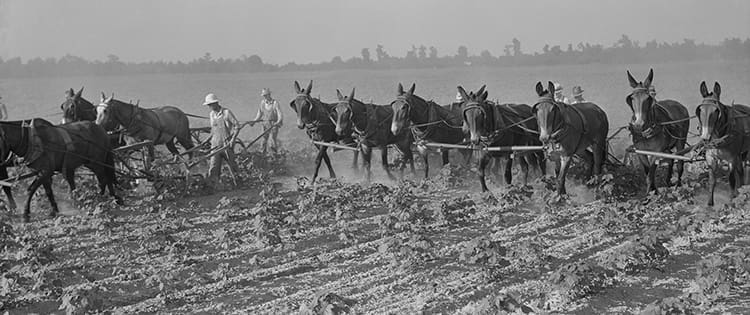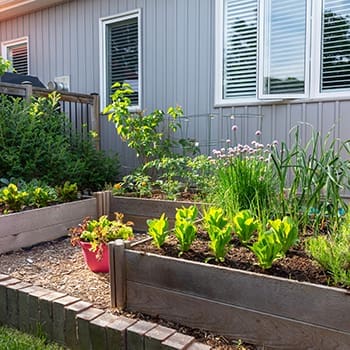The most dangerous thing about the upcoming crisis is that it’s the FIRST ONE for our whole generation.
Unlike the folks that survived the Great Depression, losing their homes and savings in between going through the hardships and shortages of the World Wars, we are NOT prepared even a little bit.
Nowadays, many of us don’t even believe that history can repeat itself. We have become dependent and have lost touch with crucial life skills.
This has to change.
The Great Depression is not that far in the past that it could not happen again. In fact, I think that the biggest threat of the century is just around the corner.
Our forefathers not only survived but thrived under these dire conditions, so we are sharing some of their lost secrets.
Survival Meant Frugality
Amid the struggles of their time, our great-grandparents needed to be resourceful and creative with what they had, so they learned to live frugally and stretch every dollar as far as possible. Most families understood that they had to learn to live within their means and make the most of what they had. Very few people, if any, lived with debt, and that taught them self-reliance and gave them focus on their own strength in providing for their families.
Back in the day, people relied on three basic principles when it came to saving money:
-
Start Your Own Garden

For many families, gardening meant filling their dinner plates. More than 20% of the population lived on farms, and even those based in the urban areas had country roots. During the Great Depression, this practice became even more widespread as families planted their own gardens to supplement their poor diets. These gardens often included vegetables and fruits as well as medicinal herbs or spices for seasoning.
-
Repair And Reuse
In those hard times, very few families had enough money to buy food, let alone buy new clothes, linens, or everyday hygiene items. Everything was worn and used until it was down to the bare threads. If the mothers were responsible for cleaning, cooking, and sewing, the handy fathers dealt with repairs around the house. Everything was recycled and reused in creative ways. For example, old clothes or linens were repurposed into rags, cleaning cloths, or even quilts. Glass jars and containers were cleaned and reused for storage or canning food.
-
Cut Back On Waste
Great Depression survivors were masters of reducing waste as they couldn’t afford to simply get rid of leftovers. Instead, they turned these into compost to create nutrient-rich soil for gardening. Another alternative was to cook everything together in the famous Depression soup. This contained everything and anything from their kitchens.
Self-Sufficiency
Nobody knows this better than our great-grandparents who lived through the Great Depression: In everyday life and especially in times of crisis, it’s essential to have both upfront and backup plans. Some of the families took on odd jobs, such as selling handmade quilts, handwoven baskets, and knitted items or gathering scrap metal to trade with others in their community.
Their “projects” ranged from small-scale gardening to creative homesteading, such as converting small patches of land into vegetable gardens or raising chickens and other animals for eggs and meat.
Families would often build their homes with their bare hands, raise their own food, and make their own clothing and household items. Not to mention that in those times, electricity wasn’t always available, and many families weren’t even connected to the electrical grid.
This was the only way to save money and provide for basic needs but also a way to build resilience and independence from store-bought goods, which were often too expensive.
Survival Food
The Great Depression was a time of starvation. When money is not coming in and you are not able to afford the food that we have today, then you will eat whatever is available.
Meals were simpler and therefore cheaper as everything was cooked for immediate consumption. However, with food often scarce and expensive, families had to find ways to make their supplies last longer and ensure they had enough to eat throughout the year.
Fruits were typically canned in the form of jams, jellies, and preserves, which were easy to make and could be stored for long periods. Vegetables were often canned as pickles or relishes or simply preserved in jars. The canning process involved boiling jars filled with food and then sealing them to prevent air and bacteria from spoiling the foods.
Did you know that there are actually 126 long-lasting foods that we lost to history?
Apart from this, parents learned some new tricks to cut down their food bill. They used to wait outside grocery stores until 10 minutes before closing time on Saturday nights to purchase fresh food at a discounted rate.
Today it still pays to be frugal by comparing prices across different stores and hunting for the best deals.
Mutual Help
As history has shown us so many times in the past, hard times bring people together. Every member of the family chipped into the family fund, and even kids found ways to earn money.
Families used to generate a shared income, such as through community gardens, collective farming, or different business ventures. Men helped each other out with physical chores around the house, while women took care of each other’s kids.
Neighborhood and family bonds became stronger as they shared resources and worked together to survive, something that has sadly been lost in modern society.
On top of that, they knew how to live without electricity. They had different projects around their house that enabled them to live a self-sufficient life. Most of these projects have been lost to history, but we managed to save 75 of them that can help you protect your own family in times of economic crisis, long-term blackouts, riots, hyperinflation, hurricanes, martial law, or other unforeseen events that may come our way. The immediate payoff of having these projects is that they make you independent and self-sufficient on your own property. You don’t want to depend on anyone for your basic needs!
You may also like:
Strange Meals People Ate During The Great Depression
An Insanely Effective Way to Build a 5 Year Food Stockpile (Video)
Off-Grid Tools You Need To Have On Your Property
7 Powerless Items You’ll Need After An EMP
How To Make A Pressure Sensor Pad To Know When You Have An Intruder On Your Property











